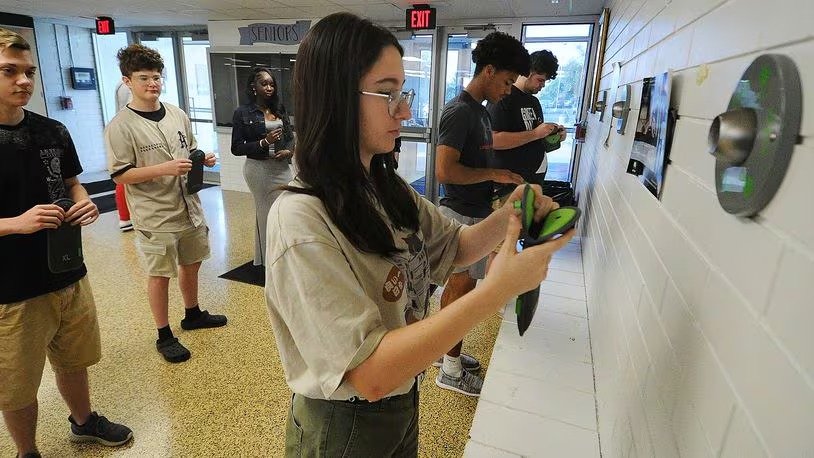Multiple State Law Changes Going into Effect This School Year

Source: https://www.daytondailynews.com/
Multiple new laws and court decisions will impact school districts this fall, including several on teacher licenses, staff licenses, keeping more student data private from technology providers, and impacting schools’ cellphone policies.
Here’s a roundup of some of the new state laws surrounding education this coming school year:
Cellphone Policies
Scott DiMauro, president of the Ohio Education Association, highlighted that Ohio schools will see a major change this year due to House Bill 250. The bill, which received bipartisan support, mandates that all public schools implement a policy governing cell phone use during school hours by July 1, 2025.
The Ohio Department of Education has provided a model policy for districts, though schools have flexibility in how they enforce it. DiMauro emphasized that this change addresses issues like classroom distractions and bullying, which have been challenging for teachers under the old system where cell phone use policies were inconsistently applied. He is hopeful that the new policies will improve both teaching conditions and student outcomes.
Student Data Privacy
Senate Bill 29 introduces new technology-related requirements for schools. It mandates that schools maintain exclusive rights to student educational records when contracting with technology providers, aiming to enhance student privacy and data protection. Chad Aldis from the Thomas B. Fordham Institute emphasized the importance of schools working with legal counsel to ensure proper protection of student information. Additionally, the bill restricts district staff’s access to school-issued devices, limiting their ability to monitor these devices.
Teacher licensure changes
Senate Bill 168 and House Bill 147 are comprehensive education reforms that aim to address teacher shortages and enhance local control in schools. Key provisions include:
- Easier Licensing for Out-of-State Teachers: Both bills streamline the process for out-of-state teachers to obtain licenses.
Expanded Grow Your Own Teacher Program: S.B. 168 increases the number of schools eligible for this program, which funds education degrees for students from high-need areas with a commitment to return and teach in their community. - Improved License Renewal for Counselors: S.B. 168 simplifies the renewal process for school counselors who have been high-performing for most of the past five years.
- Local Evaluation Systems: Schools may now develop their own evaluation methods for teachers and counselors, rather than using statewide standards, provided these systems are developed collaboratively with local unions.
Revoking licenses
New laws have been enacted to streamline the process of revoking school employees’ licenses in cases of criminal charges or misconduct. Key points include:
- Revocation for Crimes and Misconduct: School employees’ licenses can be revoked more easily if they are charged with a crime or investigated for misconduct.
- Reporting Requirements: School districts must report to the state if a licensed employee retires during a disciplinary investigation or is removed from the substitute teacher list due to inappropriate behavior.
Specific Revocation for Prostitution: The State Board of Education will revoke the license of any school employee convicted of prostitution, unless they were coerced into the offense.
Religious accommodations
Starting October 20, Ohio public schools must provide students with at least three excused absences annually for “religious expression days.” This mandate was added to House Bill 214, which originally aimed to prevent schools from requiring commitments to specific political principles.
Rep. Adam Holmes, who sponsored the bill, argued that it addresses concerns about negative consequences for expressing political views in Ohio’s schools. However, the Ohio Education Association (OEA) opposed the bill, criticizing it for potentially involving schools in political controversies and being redundant since existing regulations already protect against discrimination based on political beliefs.
School funding
A technical error in the school funding formula led to approximately $25 million in overpayments to some schools, which is less than 0.25% of the total state funding for local schools. House Bill 147 addresses this issue by adjusting the base cost calculation for school funding to correct the error and ensuring that districts will not experience a reduction in their funding due to this mistake.
Image Source: https://www.daytondailynews.com/





